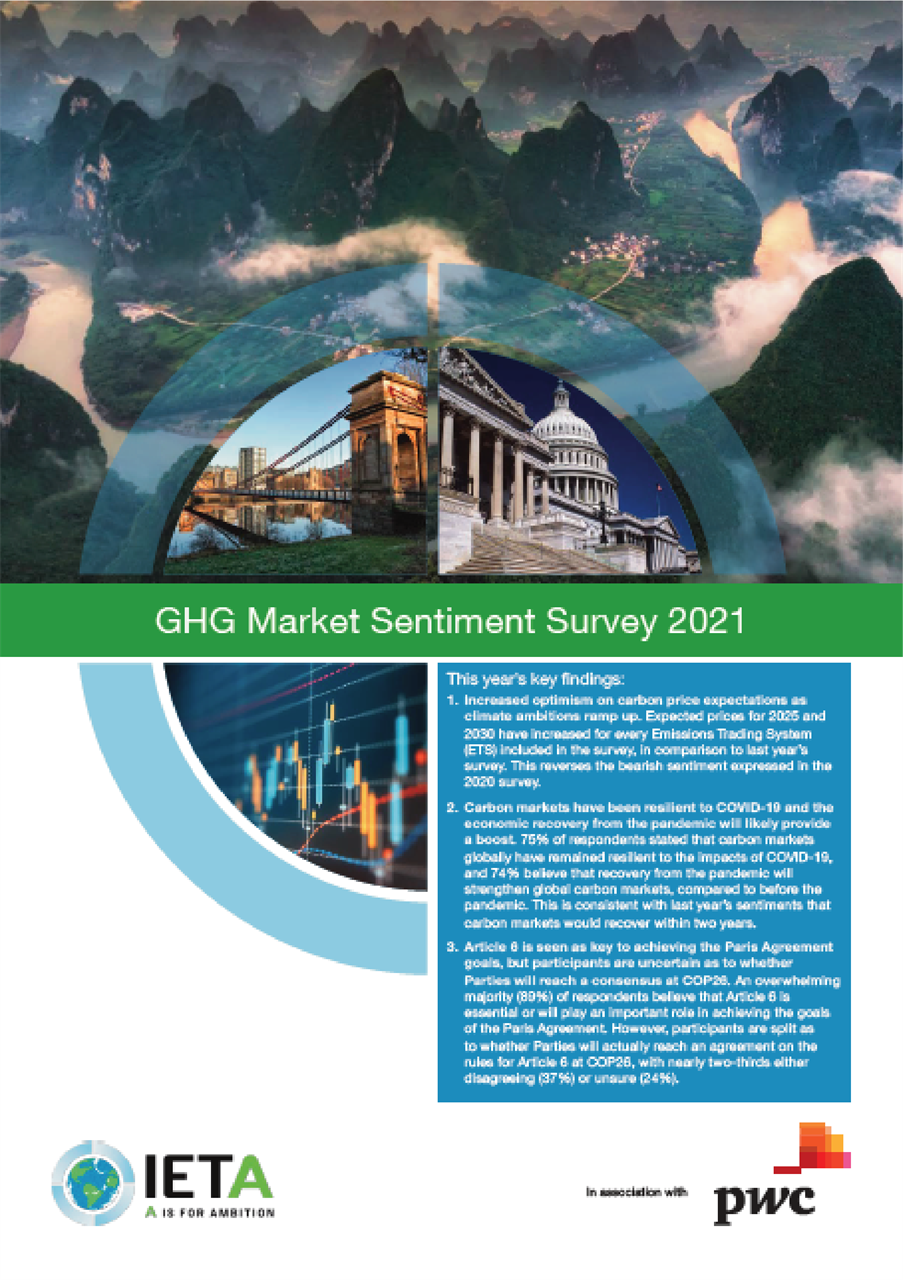2021 Survey
Download report
Climate change will be at the centre of the recovery from the COVID-19 pandemic, as governments bake emissions reduction plans into their stimulus measures and prepare to improve their Nationally Determined Contributions ahead of this year’s Conference of Parties, IETA’s annual Market Sentiment Survey has found.
Three-quarters of respondents to the survey, carried out by PwC UK’s Sustainability and Climate Change team for IETA, believe carbon markets globally have remained resilient to the impacts of COVID-19, and the same number believe that recovery from the pandemic will strengthen global carbon markets.
Expected carbon prices over the next decade are higher for all major emissions trading systems, with EU ETS prices predicted to average €47.25 over 2021-25 (compared to €31.71 estimated for the whole of Phase 4 last year) and €58.26 over 2026-30.
Prices for California allowances are expected to reach €23.44 between 2021 and 2025, and rise to €35.49 between 2026 and 2030, the survey showed. The survey also revealed bullish price expectations for emissions markets in South Korea, China, Mexico, New Zealand, the United Kingdom and the Northeast United States.
Most respondents indicated that a successful agreement on implementing Article 6 of the Paris Agreement is essential to achieving the global goal of net zero emissions by the middle of the century, though most are doubtful about whether such a deal will be reached this year when countries meet in Glasgow.
Carbon border adjustment mechanisms (CBAMs) were also a hot topic in the survey, with nearly 75% of respondents saying the EU should introduce a CBAM that would also lead to an end to free EU ETS allowances, while two-thirds expect that US President Joe Biden will introduce a similar measure.
On voluntary markets, nearly half of respondents believe that voluntary carbon markets can supply enough carbon credits to match the growth in demand from corporations. One-third of all respondents are exploring the use of Natural Climate Solutions and reforestation/afforestation schemes respectively, as part of their net zero and market growth strategy.